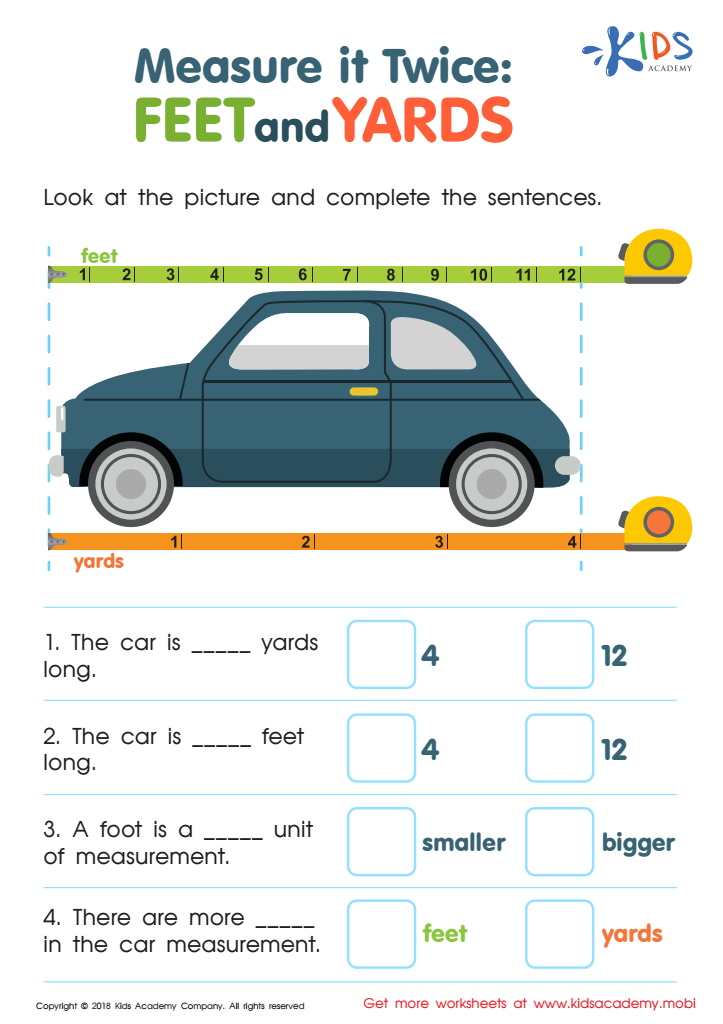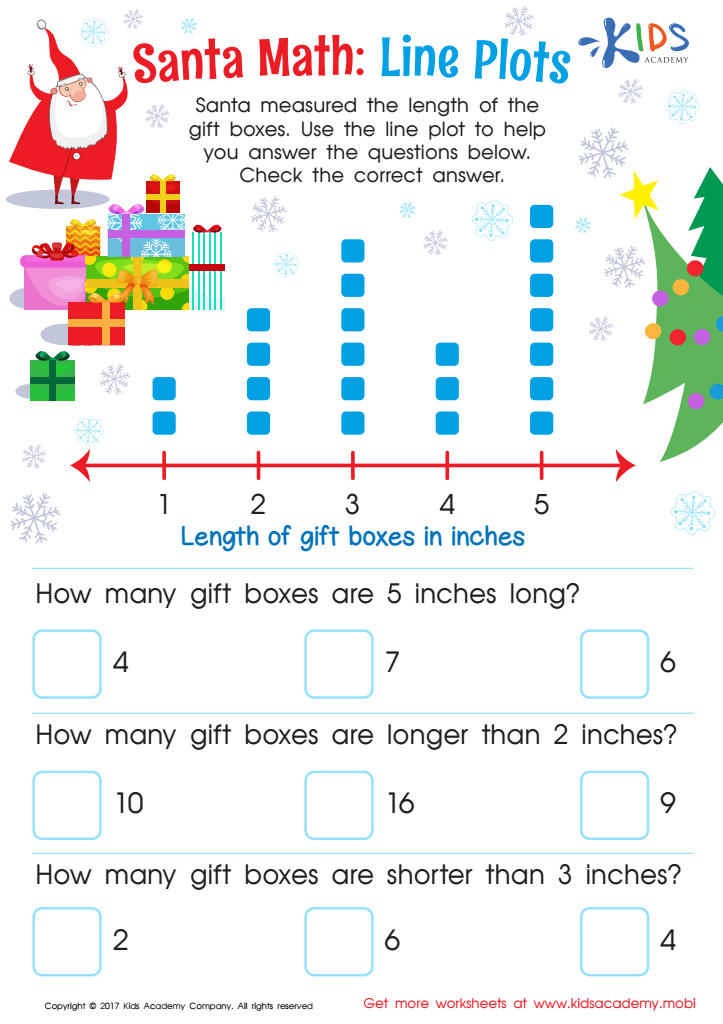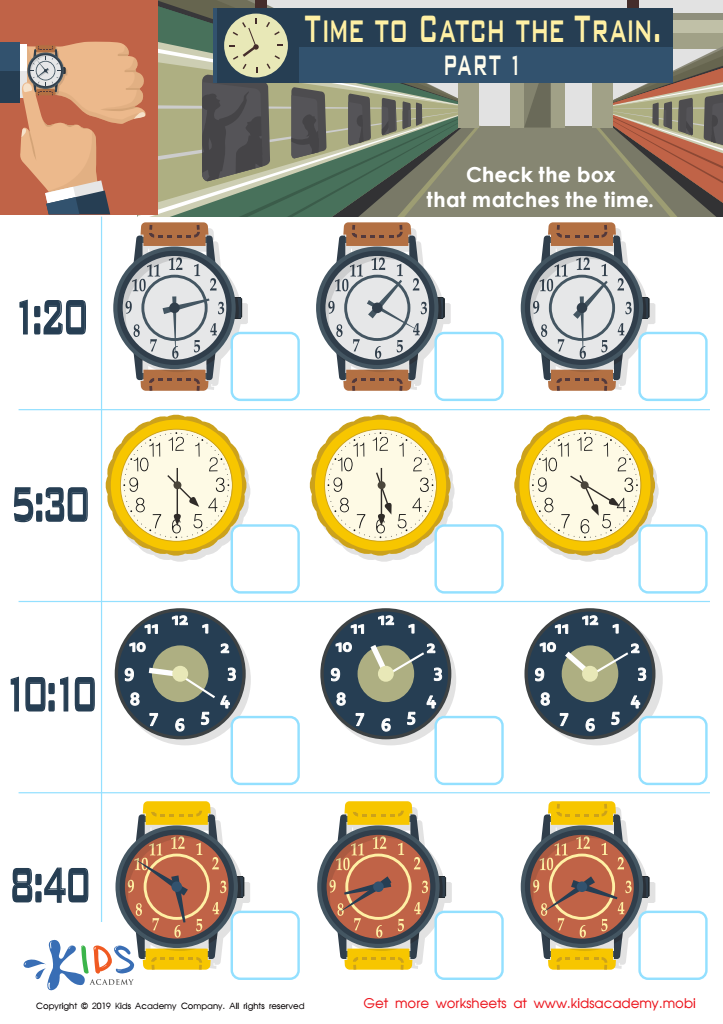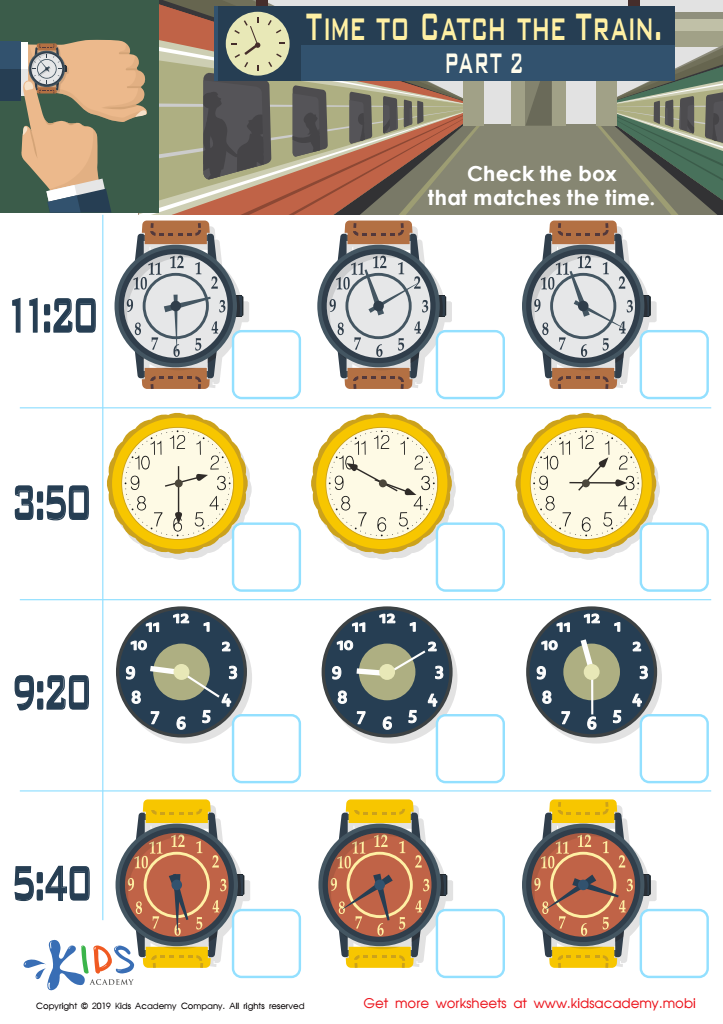Problem-Solving Skills Normal Measurement Worksheets for Ages 5-7
4 filtered results
-
From - To
Enhance your child's problem-solving abilities with our engaging Normal Measurement Worksheets designed for ages 5-7. These worksheets provide a fun and interactive way for young learners to grasp essential measurement concepts, including length, weight, and volume. Each worksheet features age-appropriate activities that encourage critical thinking and reasoning skills, helping children tackle real-world problems. Perfect for classroom use or at-home learning, our printable resources promote a deeper understanding of measurements while building confidence in their problem-solving skills. Get your child started on the path to becoming a math whiz today with our easy-to-use and visually appealing worksheets!


Measure It Twice: Feet and Yards Worksheet


Line Plot Worksheet


Time to Catch the Train Part 1 Worksheet


Time to Catch the Train Part 2 Worksheet
Parents and teachers play a crucial role in the development of problem-solving skills in children aged 5-7, as these foundational abilities set the stage for future learning and life success. Problem-solving skills empower children to navigate challenges, think critically, and make informed decisions. During this stage, children are naturally curious, and cultivating their problem-solving skills greatfully fosters creativity and analytical thinking, both of which are essential for academic achievement and everyday tasks.
Furthermore, Problem-Solving Skills Normal Measurement provides a standardized way to assess children's problem-solving capabilities, thus identifying areas where they may need additional support or enrichment. By understanding individual strengths and weaknesses, educators and parents can tailor their approaches to better foster growth and resilience in each child. It equips them with strategies to face challenges, enhances their ability to work collaboratively with others, and boosts their confidence in their abilities.
Ultimately, instilling and measuring these skills in early childhood not only promotes cognitive development but also helps in building emotional intelligence and social skills. Through intentional focus on problem solving, we are preparing children for a lifetime of learning and adaptability, equipping them to thrive in diverse and ever-changing environments.
 Assign to My Students
Assign to My Students
















